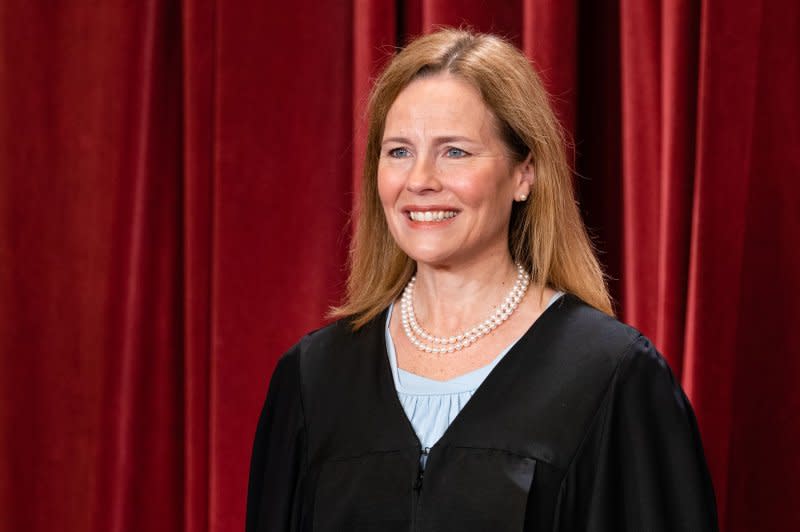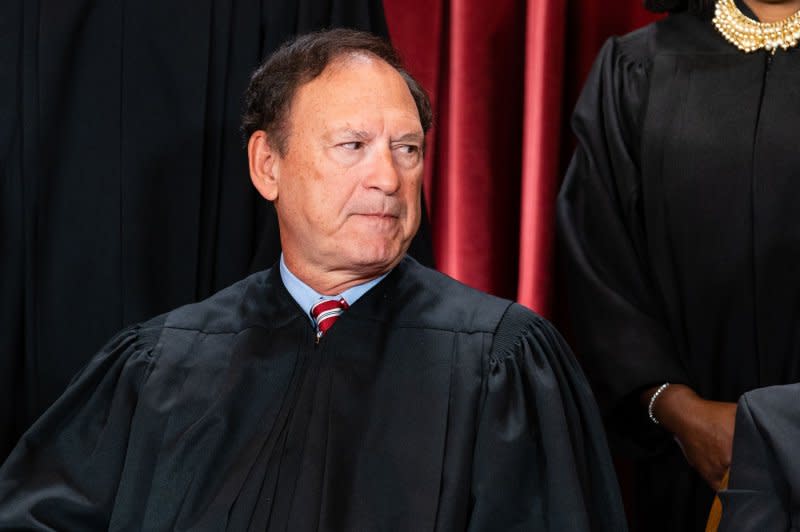Supreme Court rejects challenge to government's requests to remove social media misinformation

June 26 (UPI) -- The U.S. Supreme Court Wednesday ruled against plaintiffs and for the federal government Wednesday in a case testing the limits of what the government can do to restrict misinformation content on social media.
The 6-3 decision tossed out a challenge by two states and five social media users and overturned a lower court injunction that would have curtailed interactions between government officials and social media companies.
The opinion, written by Justice Amy Coney Barrett, said that the Fifth Circuit Court of Appeals was wrong when it agreed with the plaintiffs that the content moderation violated the First Amendment.
Her opinion said the challengers lacked standing to bring the case as they failed to prove the content moderation was the result of government action.
"We begin -- and end -- with standing," Barrett wrote. "At this stage, neither the individual nor the state plaintiffs have established standing to seek an injunction against any defendant. We therefore lack jurisdiction to reach the merits of the dispute."

Missouri, Louisiana, and five social media users sued dozens of Executive Branch officials and agencies alleging that the federal government pressured social media platforms to suppress First Amendment protected speech relating to COVID-19 vaccines as well as the 2020 presidential election and 2022 midterms, according to the Supreme Court opinion.
"The plaintiffs rely on allegations of past government censorship as evidence that future censorship is likely," Barrett wrote. "But they fail, by and large, to link their past social-media restrictions to the defendants' communications with the platforms. Thus, the events of the past do little to help any of the plaintiffs establish standing to seek an injunction to prevent future harms."

She said plaintiffs "cannot manufacture standing merely by inflicting harm on themselves based on their fears of hypothetical future harm that is not certainly impending."
The court decision said plaintiffs "do not point to any specific instance of content moderation that caused them identifiable harm."
The court ruling said states don't have third-party standing to sue the federal government "on behalf of their citizens who have faced social-media restrictions."
"The plaintiffs, without any concrete link between their injuries and the defendants' conduct, ask us to conduct a review of the years-long communications between dozens of federal officials, across different agencies, with different social-media platforms, about different topics," the Supreme Court opinion concluded. "This court's standing doctrine prevents us from "exercis[ing such] general legal oversight" of the other branches of Government."
Justices Samuel Alito, Clarence Thomas and Neil Gorsuch dissented from the majority ruling.
In the dissent Alito wrote that federal officials "wielded potent authority" in attempts to moderate content the government said was misinformation.
"Their communications with Facebook were virtual demands. And Facebook's quavering responses to those demands show that it felt a strong need to yield," Alito wrote in the dissent. "For months, high-ranking Government officials placed unrelenting pressure on Facebook to suppress Americans' free speech. Because the court unjustifiably refuses to address this serious threat to the First Amendment, I respectfully dissent."


